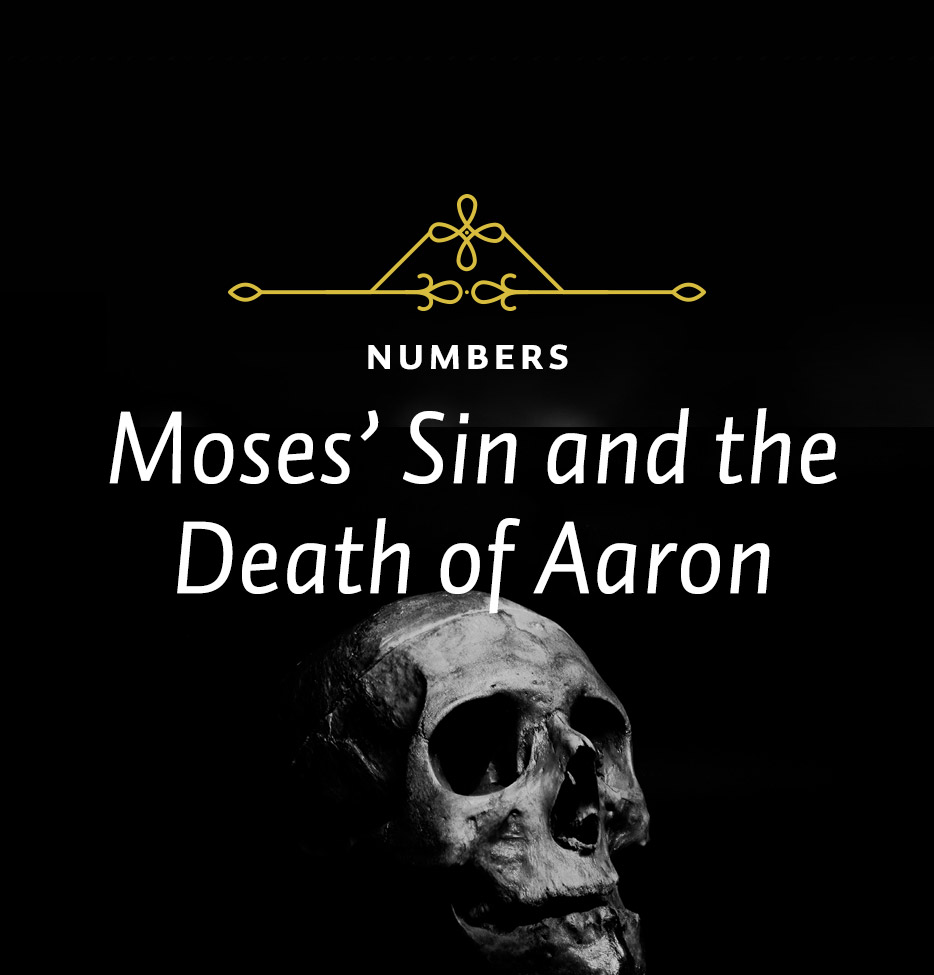Miriam’s death was a reminder of God’s judgment upon the people—that no one of that generation was going to enter the promised land. And it’s a reminder of our own death as well. Death is an inescapable realty. God declares that man is destined to die once, and after that to face judgment (see Heb. 9:27). So at the very start of the chapter we are reminded of the importance of preparing for death.
We usually think of the people of Israel spending all this time in the wilderness all massed together in an encampment like the one described at the beginning of Numbers. When they were on the march, they probably did move that way. But during the decades of their wilderness wandering, they must have scattered around. They lived by their flocks and herds, and they must have moved around trying to find water and grazing land, perhaps over a very wide area of the Sinai. But now the advance is about to begin, and the people have all massed together once more at the border of the promised land.
When they got back together again, water became a problem, and they began to vehemently complain: “If only we had died when our brothers fell dead before the LORD! Why did you bring the LORD’s community into this desert, that we and our livestock should die here? Why did you bring us up out of Egypt to this terrible place? It has no grain or figs, grapevines or pomegranates. And there is no water to drink” (Num. 20:3-5). As you read that, you get the impression that they haven’t learned anything in thirty-eight years. They actually had, because they did show some repentance—unlike earlier, when they had not always repented of their complaining. However, it doesn’t seem that they learned very much.
In response to their complaints, Moses doesn’t do exactly what God told him to do in order to receive water from the rock. For one thing, he spoke to the people instead of to the rock. And he spoke in anger. Moreover, he not only struck the rock once, but twice. He involved both himself and Aaron in the miracle because, instead of giving all of the glory to God, he said “Listen, you rebels, must we bring you water out of this rock?” (v. 10). Moses sinned, and the judgment of God falls on him.
I’m very sympathetic to Moses. He’s been doing his job for at least forty years in the wilderness. He is an old man. He has waited an awfully long time to get into the promised land. And these people have been very difficult. I don’t read anywhere that they ever came to Moses and said, “Moses you’re doing a great job. Keep up the good work.” They were always complaining when things didn’t go well. If you have a job that isn’t going well and you last twelve months, you think you’re doing it pretty well. He’s been doing it for thirty-eight years! And now at the end he just finds his patience wearing a little thin. He gets angry and he moves on his own. We look at this and think it was a very small thing. But with God small things matter. If you do a small good thing for God, He takes note of it and blesses it. But God also takes note of small bad things, which is what happens here in the case of Moses.
There were three things Moses did, which put together reflects a rather significant failure. First, Moses didn’t follow the instructions of God exactly. God said, “Take the staff, and you and your brother Aaron gather the assembly together. Speak to the rock before their eyes and it will pour out its water. You will bring water out of the rock for the community so they and their livestock can drink” (v. 8). Moses took the staff, just as God had commanded him, and gathered the people together in front of the rock. So far, so good. But then Moses raised his arm and struck the rock twice with his staff (see v. 11). God had said to speak to the rock, but Moses struck it. And even though the water came out, what he had done displeased God.






